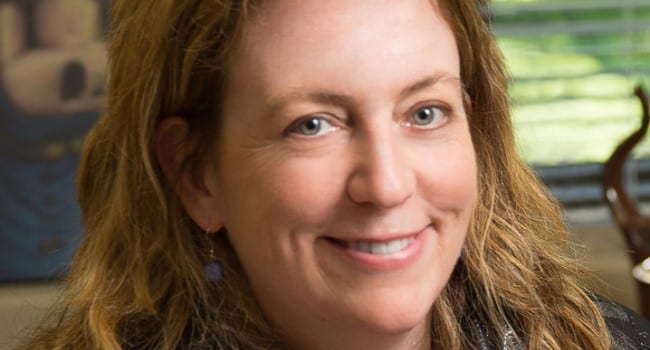Cassy Weber is CEO of MindFuel
What is MindFuel and what does it do?
Weber: It was established in 1990 by Jim Gray as the Science Alberta Foundation. MindFuel is a registered charitable organization focused on creating future generations of innovators and problem-solvers. As a digital literacy pioneer, MindFuel is helping Canada diversify its economy through a focus on STEM (science, technology, engineering and math) education and career paths. MindFuel supports teachers with 21st century award-winning learning services and helps immerse students in the fun world of STEM through blended

Cassy Weber
learning, which includes both digital and hands-on training, critical to advancing Canada’s Innovation Agenda. MindFuel empowering young women, Indigenous peoples, and other under-represented groups to pursue careers in STEM.
Can you explain your partnership with Agents of Discovery and the new Wonderville.org lesson plans?
Weber: MindFuel and Agents of Discovery (AoD) have collaborated on the launch of its all-new Wonderville lessons plans that integrate AoD’s interactive AR platform. Wonderville is a student engagement platform that serves hundreds of thousands of teachers and students across Canada and millions more in more than 170 countries. With Wonderville’s heightened focus on building a digital ecosystem that inspires life-long student learning in STEM, the AR-enabled lesson plans further propel this mission through its inclusion of immersive and engaging learning activities that students can access on mobile devices, tablets or laptops. The 120+ curriculum-aligned AR lessons and activities are designed to engage students through movement, while simultaneously learning about a variety of topics across science curriculum.
Are we doing enough to prepare the next generation for emerging technology?
Weber: MindFuel reaches hundreds of thousands of students annually with our deeply impactful programs focusing on digital skills development and STEM innovation. Specifically, in Alberta, we served 160 communities last year, both rural and urban, by providing high-quality and state-of-the-art programs for girls in STEM, Indigenous and economically disadvantaged communities. The biggest challenge for us and other non-profits in the STEM space is being faced with recent government budget cuts which limit our abilities and affect our programs in a large way. But even with budget limitations, we are working hard to provide 21st century technology-centric learning solutions to teachers and students. We’re 100 per cent committed to helping prepare our future workforce for the innovation and digital economy.
Why is Augmented Reality so important for the future?
Weber: Augmented Reality (AR) adds digital elements to real world landscapes by using smartphone or tablet cameras. Examples of AR experiences include Pokemon Go and SnapChat lenses. AR differs from VR, where the latter provides an immersive experience within the digital application (i.e., there is no real-world aspect). Many studies have determined that AR drives user engagement. By offering an interactive experience to students, we expect to build their interest in STEM disciplines. Also, by learning through AR missions, students are moving about and actively involved in their lessons. Studies show AR is going to be an important part of the future of education as it engages students in a thought-provoking way.
When it comes to adaptation to technology, how does Alberta rate compared to other provinces?
Weber: The latest PISA (2015) rankings for science show Alberta leads the country, which is consistent with prior pan-Canadian studies. Overall, Canada placed in the top seven globally. However, Alberta ranked second globally (just behind Singapore), and British Columbia and Quebec ranked third and fifth, respectively. (https://education.alberta.ca/media/3402017/pisa-2015-science.pdf).
Alberta’s Learning Technology Policy Framework recognized in the early 2000s that technology will rapidly shift from merely providing tools for teachers to communicate with students and parents to becoming a critical aspect of student learning. Generally speaking, technology is a critical enabler of both learning for the student and of teaching for the educator. In Alberta, technology has been incorporated into many pedagogical/instructional/learning contexts in sciences from the early 2000s, which is important in supporting diversified and inclusive classrooms. MindFuel’s role early on was to develop and distribute technology-based solutions in Science based on Alberta’s technology focused curriculum. We launched one of the first science education online destinations in 2001, which remains very popular to this day. Therefore, part of our support to Alberta, and now other provinces, has been to develop technology-based solutions which help students build digital competencies and enable them to create and share knowledge.
Cassy Weber was interviewed by Mario Toneguzzi for Calgary’s Business.
![]() The views, opinions and positions expressed by columnists and contributors are the author’s alone. They do not inherently or expressly reflect the views, opinions and/or positions of our publication.
The views, opinions and positions expressed by columnists and contributors are the author’s alone. They do not inherently or expressly reflect the views, opinions and/or positions of our publication.

